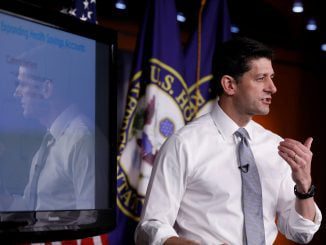RALEIGH — The Republican-led N.C. Senate caused whiplash for many General Assembly observers last week when the chamber’s dominant Republicans unveiled a Medicaid expansion bill and quickly advanced it through a pair of committees. The measure appears destined for passage on the floor this week.
“Like many of my colleagues, I’ve previously been against expanding Medicaid, but it has evolved from bad federal policy to good state fiscal policy. This comprehensive approach will help more North Carolinians access the care they need,” state Sen. Joyce Krawiec (R-Forsyth) said Thursday. “Additionally, this bill offers a lifeline for our rural hospitals through additional federal funding and providing coverage for telehealth services.”
Senate Republicans honed their message about why now is the time to expand: the senators said the bill increases affordable healthcare options, reduces regulations, and that the plan is sound policy after they’ve enacted reforms to the state’s Medicaid program.
Citing a study by the website WalletHub, Republicans in the chamber say that North Carolina ranks 49th out of the 50 states in healthcare costs. “Compared to other states, North Carolina has some of the highest healthcare costs in the nation, yet our outcomes and access do not reflect the cost,” a press release from Senate Leader Phil Berger’s (R-Eden) office says.
North Carolina is one of a dozen states that have not expanded Medicaid as of this year.
At a press conference led by Berger and Krawiec on Wednesday, May 25, the lawmakers laid out the case for accepting the expansion in exchange for supply-side reforms in the state’s healthcare system.
Berger said there was “no fiscal risk” to the state budget and that the state’s Medicaid program has been reformed and transformed in the past several years.
The bill as currently constituted adds $600 million from the federal government to establish the Healthcare Access and Stabilization Program, which is designed to bolster state hospitals. It also requires annual transparency reports from the N.C. Department of Health and Human Services (NCDHHS) on the program’s costs.
“If there is a person who has spoken out against Medicaid expansion more than I have, I would like to talk to that person about why my view has changed,” said Berger. “We need coverage in North Carolina for the working poor.”
In an Associated Press report about the topic, Berger confirmed he was open to expansion in state budget negotiations. That change in position first became public last fall as the budget process was at an impasse before Gov. Roy Cooper ultimately signed the budget. He said he was now convinced the federal government’s 90% share of expenses for expansion enrollees would not soon be eliminated.
A bill summary says the expansion proposal would cover adults making up to 38% above federal poverty guidelines, likely covering at least 600,000 people. Currently, about 2.7 million North Carolina residents are enrolled in Medicaid.
The bill includes what the senators described as a “significant” certificate of need (CON) reforms. CON laws require state health regulators to sign off on any expansion plans by hospitals and other medical providers. The issue of CON reform has been a longtime fixture for conservative legislators and nonprofits.
In addition, work requirements are included in the bill. That would prove ripe for a legal challenge, however, as has happened in many other states implementing Medicaid expansion. Federal approval of work requirement waivers are still pending in nine states.
The state’s 10% share of expansion expenses would be paid through a new assessment on hospitals. Expansion would end if Congress increased the state’s share. The program also would include a work requirement for expansion recipients — a mandate that in other states has been struck down by federal courts and blocked elsewhere by President Joe Biden’s administration.
The measure also would permit nurse practitioners, certified nurse-midwives, and nurses with other advanced specialties to practice without a physician’s formal supervision. The legislation also would require health insurers in the state to cover telehealth services, and in-network health facilities would have to alert consumers when out-of-network providers are scheduled to provide care.
Even with the bill’s expected passage in the Senate, it may not receive a warm welcome in the North Carolina House of Representatives.
Expansion has “been one of the most contentious issues for years,” House Speaker Tim Moore (R-Kings Mountain) told reporters. “I don’t see an appetite for it right now,” he said in an Associated Press report.
Additionally, House Majority Leader John Bell (R-Wayne) told Raleigh TV station WRAL that the bill would be “dead on arrival” in the House.
As part of last year’s comprehensive state budget agreement, a joint committee was established to study the issue of Medicaid expansion and access to health care. The committee met six times earlier this year, most recently on April 26.
Various industry experts gave testimony and examples of how other states launched health care reforms. At one meeting, failed presidential candidate John Kasich talked about the Ohio Medicaid expansion project.
Bell added in the WRAL interview, “We were going through the committee process like we agreed to. Then to have a bill come out of left field? To have three very controversial subjects in it? There is strong opposition to the way the Senate has done that in our caucus.”


